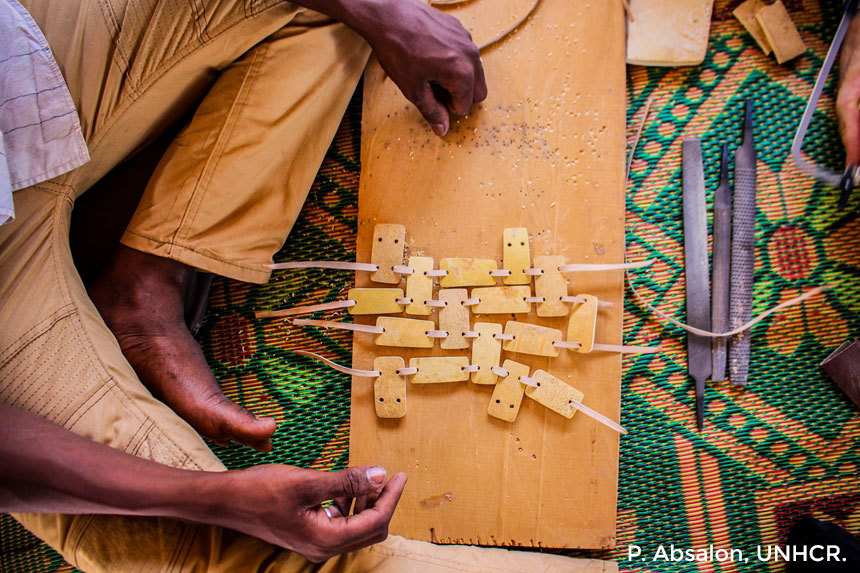MADE51 provides refugee artisans with a means to market their crafts worldwide. By collaborating with a global network of social enterprises, not only does MADE51 provide refugees around the world with a sustainable livelihood, but it also helps keep traditional craftsmanship alive. We caught up with Heidi Christ, MADE51’s Global Manager, to gain greater insight into the inner workings of the organization.
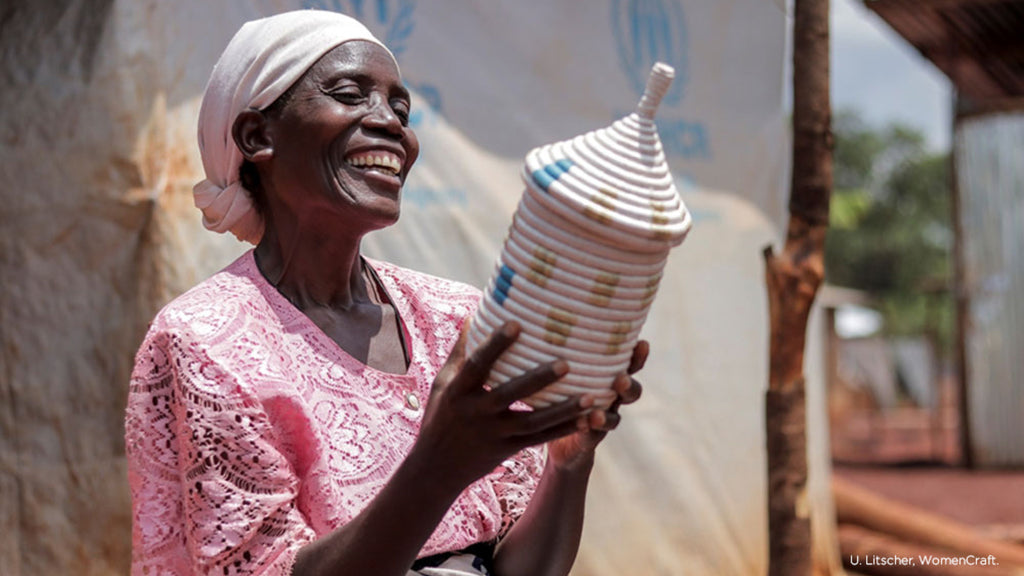
“Refugees are people just like you and me who have found themselves in a challenging situation. They don’t want to sit idle – they want to actively engage.”
MADE51 makes this possible. Initiated by the UN Refugee Agency (UNHCR), MADE51 provides refugee artisans with a means to market their crafts worldwide. By collaborating with a global network of social enterprises, not only does MADE51 provide refugees around the world with a sustainable livelihood, but it also helps keep traditional craftsmanship alive.
MADE51’s first collection launched in Frankfurt this February. Comprising 12 product lines, the collection includes embroidered home textiles from Pakistan, wool kilims and cushions from Afghanistan, scarves and accessories from Egypt and bronze and copper trinkets from Burkina Faso.
Below, we caught up with Heidi Christ, MADE51’s Artisan Value Chain Expert, to gain greater insight into the inner workings of the organisation.
In what ways does being a MADE51 artisan benefit refugees?
Refugees are stuck in indefinite limbo and have often lost their sense of freedom to work, play and live. MADE51 gives refugees an opportunity to earn an income through meaningful work. We strive to create sustainable business opportunities for refugees by involving them in the global supply chain.
When refugee participate in the global artisan value chain they can express their artistic traditions, preserve their cultural heritage, learn transferable business and vocational skills and restore their sense of dignity and self-determination. They also earn an income which reduces their dependency on aid and improves their self-reliance.
How does MADE51 identify local social enterprises to collaborate with? Are there any specific requirements that these social enterprises must meet?
Approximately 14 (and counting) local social enterprises have so far agreed to add a refugee product line to their operations. MADE51 supports these efforts through marketing and branding opportunities that help the social enterprises expand sales for their refugee product lines. Selecting a strong local social enterprise with export experience, ethical values and good design aesthetic is key to MADE51. We vet the enterprises and then work hard to ensure they have the capacity and quality standards to deliver refugee-made products to buyers according to order specifications.
The World Fair Trade Organization is our partner in ensuring that Fair Trade principles are being met by the social enterprises. While there are many areas that are assessed, we must ensure that refugees are paid a fair wage, have good working conditions, do not face protection risks and there is no child labour. We use a customised Ethical Compliance Assessment to make sure social enterprises can work with refugee artisans through a safe and fair value chain.
Q&A WITH MADE51
MADE51 provides refugee artisans with a means to market their crafts worldwide. By collaborating with a global network of social enterprises, not only does MADE51 provide refugees around the world with a sustainable livelihood, but it also helps keep traditional craftsmanship alive. We caught up with Heidi Christ, MADE51’s Global Manager, to gain greater insight into the inner workings of the organisation.

“Refugees are people just like you and me who have found themselves in a challenging situation. They don’t want to sit idle – they want to actively engage.”
MADE51 makes this possible. Initiated by the UN Refugee Agency (UNHCR), MADE51 provides refugee artisans with a means to market their crafts worldwide. By collaborating with a global network of social enterprises, not only does MADE51 provide refugees around the world with a sustainable livelihood, but it also helps keep traditional craftsmanship alive.
MADE51’s first collection launched in Frankfurt this February. Comprising 12 product lines, the collection includes embroidered home textiles from Pakistan, wool kilims and cushions from Afghanistan, scarves and accessories from Egypt and bronze and copper trinkets from Burkina Faso.
Below, we caught up with Heidi Christ, MADE51’s Artisan Value Chain Expert, to gain greater insight into the inner workings of the organisation.
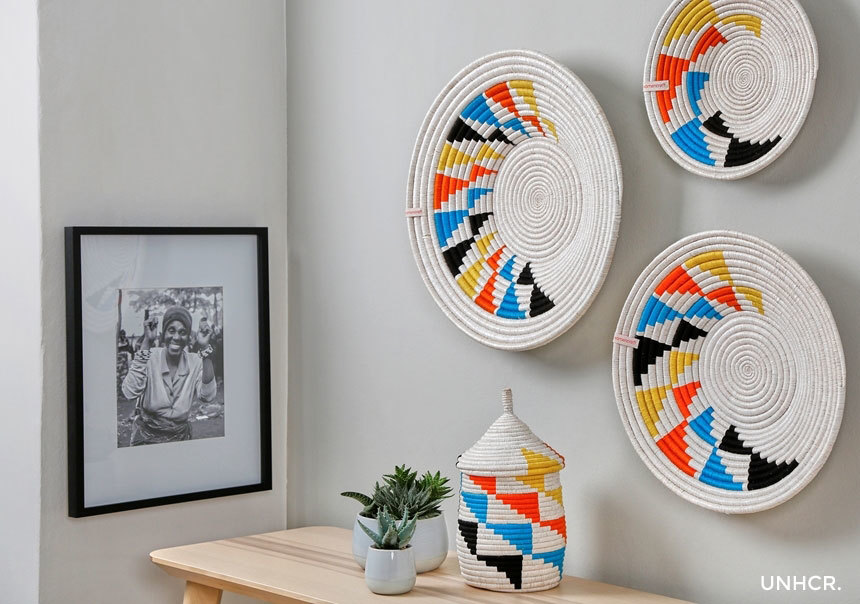
In what ways does being a MADE51 artisan benefit refugees?
Refugees are stuck in indefinite limbo and have often lost their sense of freedom to work, play and live. MADE51 gives refugees an opportunity to earn an income through meaningful work. We strive to create sustainable business opportunities for refugees by involving them in the global supply chain.
When refugee participate in the global artisan value chain they can express their artistic traditions, preserve their cultural heritage, learn transferable business and vocational skills and restore their sense of dignity and self-determination. They also earn an income which reduces their dependency on aid and improves their self-reliance.
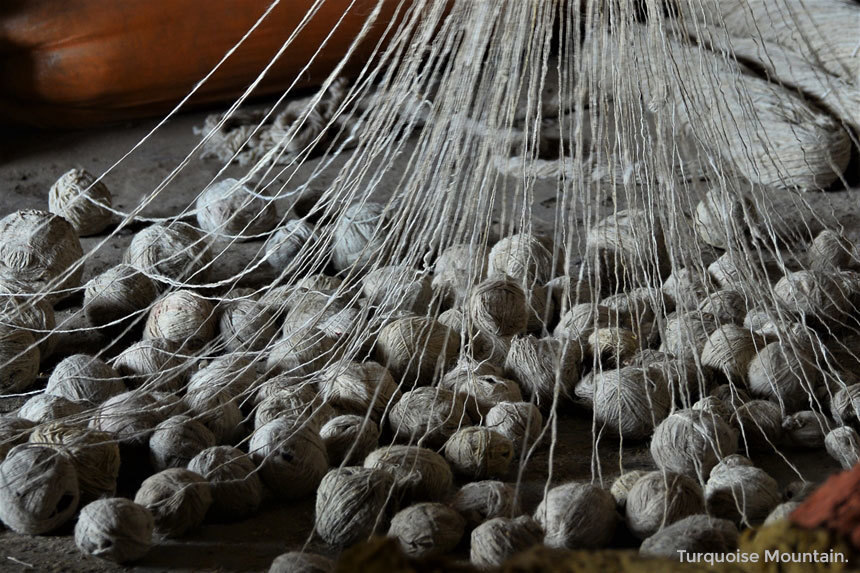
How does MADE51 identify local social enterprises to collaborate with? Are there any specific requirements that these social enterprises must meet?
Approximately 14 (and counting) local social enterprises have so far agreed to add a refugee product line to their operations. MADE51 supports these efforts through marketing and branding opportunities that help the social enterprises expand sales for their refugee product lines. Selecting a strong local social enterprise with export experience, ethical values and good design aesthetic is key to MADE51. We vet the enterprises and then work hard to ensure they have the capacity and quality standards to deliver refugee-made products to buyers according to order specifications.
The World Fair Trade Organization is our partner in ensuring that Fair Trade principles are being met by the social enterprises. While there are many areas that are assessed, we must ensure that refugees are paid a fair wage, have good working conditions, do not face protection risks and there is no child labour. We use a customised Ethical Compliance Assessment to make sure social enterprises can work with refugee artisans through a safe and fair value chain.
Do all local social enterprises work with makers in the same way?
While all social enterprises operate as independent businesses and are in full control of their operations, we ensure that each enterprise applies MADE51 guidelines to their work with refugee artisans. We provide them with coaching and business development support to make sure that they have the tools necessary to operate within the guidelines.
What were the key considerations when curating MADE51’s debut collection?
We know that the market is saturated with artisan-made products. But, through strong partnerships and innovative design, MADE51 products can stand on their own and compete in the competitive global marketplace.
In the debut collection, we chose to celebrate the diversity of skills of refugee artisans across the globe by showcasing a wide range of product types and crafts skills. There are currently 17.2 million refugees in the world under UNHCR’s mandate – this equates to the population of the Netherlands. This means that there is a wide variety of skills and materials to highlight in such a collection. And if we combine these traditional skills with contemporary design, as we do in this debut collection, it makes for products that carry the refugee stories while also making them suitable for your living-room table.
How will the MADE51 collection evolve? Will there be a second collection?
There is a great demand within the refugee population to join MADE51 and to earn income through their artisanal skills. As soon as we are able to, we will work with more countries and add more product lines to the collection.
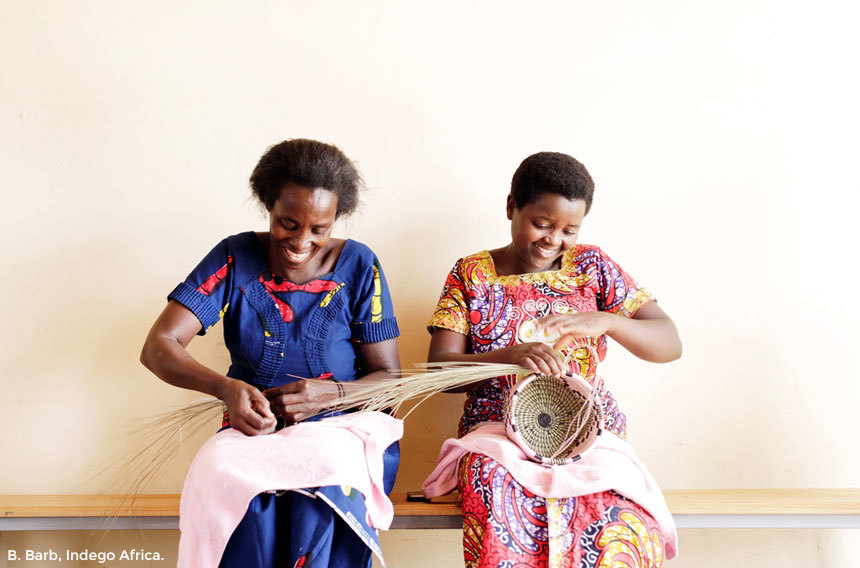
What are MADE51’s ambitions for this year?
Though we are just at the beginning, we see there is so much potential. There has been a tremendous response to date – retailers love the products and the story. So we aim to deliver what they need to sell the products and re-order, so that those refugees who are now equipped with the skills can craft products and earn income and beyond that, we can scale and engage more refugee artisans.
What does MADE51 hope to achieve in next five years?
Our first goal is to increase scale so we can sustainably engage as many refugees as possible. Artisan work helps refugees not only earn income; it is dignifying work that allows them to actively apply their talents and share their heritage, despite their refugee status. Secondly, we hope to help grow the local social enterprises that form MADE51. These enterprises have made a commitment to include refugees in their operations. Through MADE51, we can help them gain more exposure to new markets, which will help their entire business to grow and lead to increased orders for all their producers.
We also aim to change public perceptions of refugees. When the general public sees the MADE51 collection supported by vivid storytelling, they gain a new understanding of refugees. They are people just like you and me who have found themselves in a challenging situation. Refugees don’t want to sit idle – they want to actively engage. With a bit of support, they can make great contributions to the economy and to society.
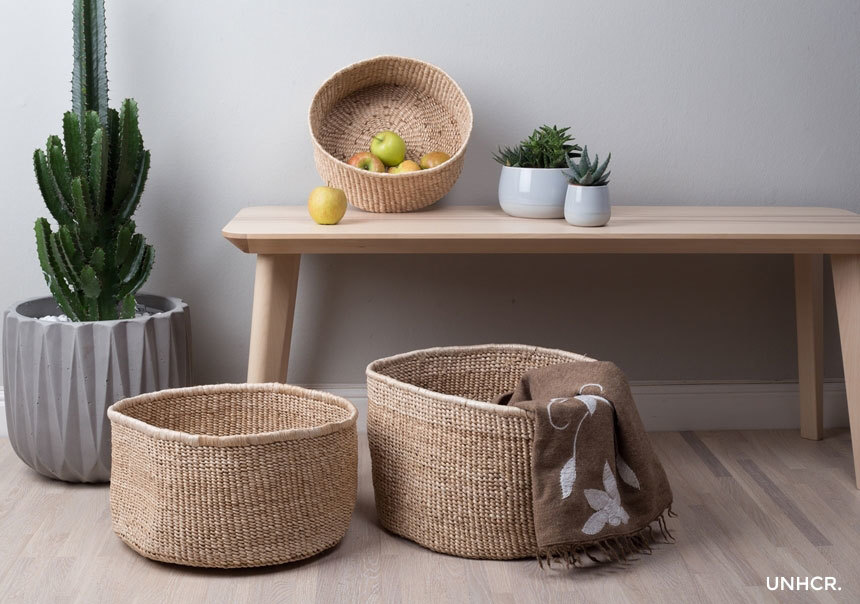
Where are MADE51 products currently sold? Where would you like for them to be sold?
Buyers are currently placing first orders through the local social enterprises and we hope these products will be on shop shelves soon. Meanwhile, most of the local social enterprises are selling their MADE51 products directly through their own e-commerce sites.
For each product line MADE51 estimates the potential for additional refugee artisans with increased market demand. How is this calculated and what does it say about the potential of refugee-made craft?
A crucial element of MADE51 is being able to scale up and incorporate as many refugees as possible within the artisan value chain, from raw materials processing to crafting to logistical arrangements. Refugees are eager to get involved and be productive contributors. MADE51’s ability to scale up depends on buyers and customers. When orders are received and buyers commit to long-term sourcing arrangements, the local social enterprises can increase the number of producers and grow.
To give you an example, 54,000 refugees reside in Azraq refugee camp in Jordan. The crochet technique is a heritage skill of Syrian women and typically girls and young women learn to crochet from their mothers. Currently, there are 200 refugee artisans who are equipped to weave beautiful cashmere throws through our social enterprise partner, SEP Jordan. However, we have estimated that nearly 5,000 refugees could be involved in this value chain, given the prevalence of the skill, the number of refugee women of working age and other factors such as the types of other employment activities that may be available. Of course, this all depends on market demand and getting buyers on board.
